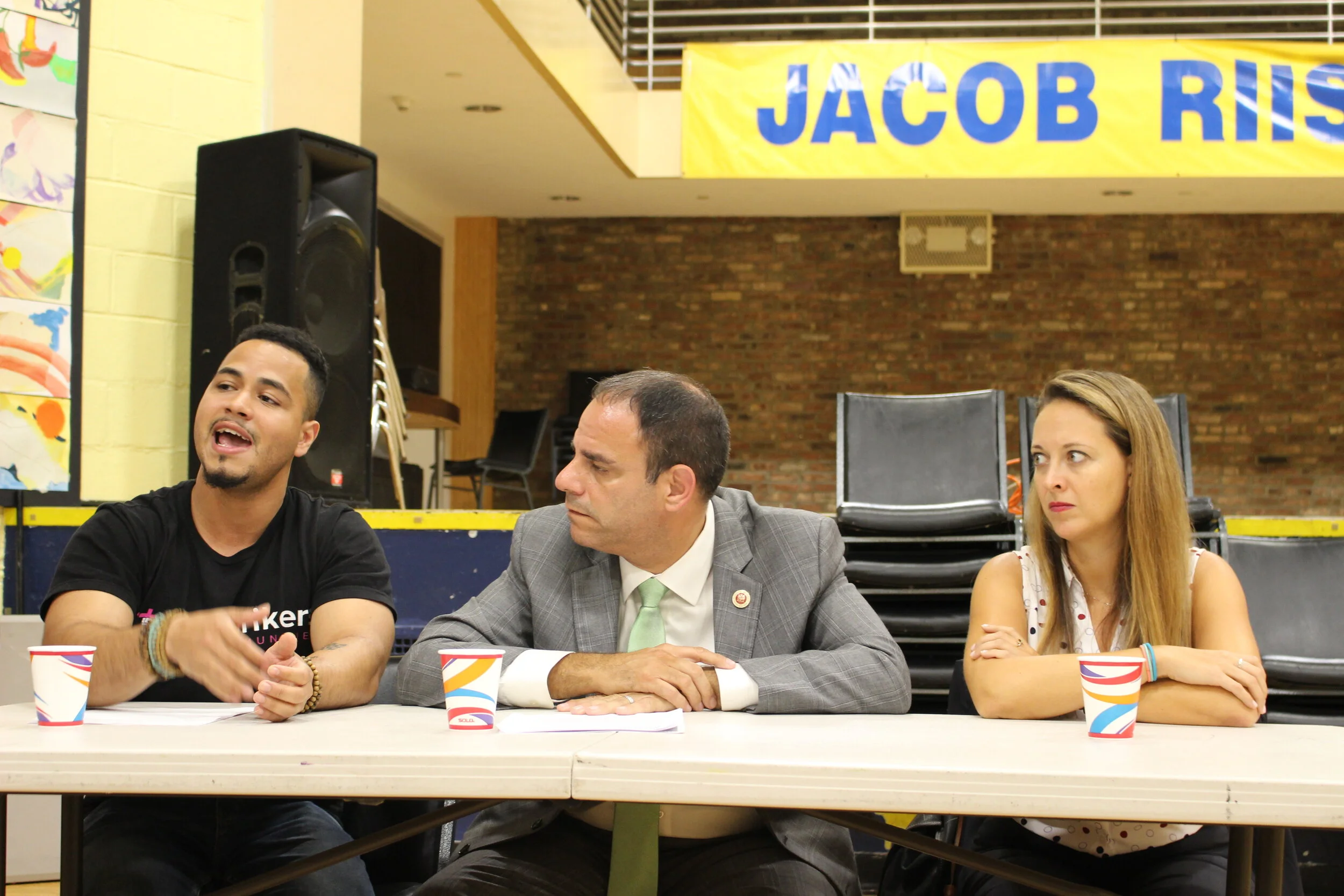Rikers Revisioning Forum lays out the potential future of infamous jails site
/Panelists Vidal Guzman of #CLOSErikers, Councilmember Costa Constantinides, and Melissa Iachan, senior staff attorney in the Environmental Justice program at New York Lawyers for the Public interest. Eagle photo by Amanda Glowodowski
By Amanda Glodowski
The grass is always greener on the other side of Rikers’ closing.
Community leaders gathered on Tuesday night at the Rikers Revisioning Forum to raise awareness about the potential closing of Rikers and invite attendees to add their ideas to the deliberation around what will become of the land. While the ambitious renewable Rikers legislation piqued attendees’ interest, many were also uncertain of the plan’s feasibility.
Residents agreed on one thing: Riker’s needs to go.
“If you want to see hell, firsthand, Rikers Island is it,” said Vidal Guzman, a panelist who was incarcerated on Rikers several times and now speaks about criminal justice reform. “Just because someone has left Rikers, doesn’t mean that Rikers has left them. We are impacted in a way where we have to have serious conversations about mental and public health.”
The renewable Rikers legislative package would convert the island into an energy hub, and includes plans for solar panels, an anaerobic digestion system to compost food waste, and a wastewater treatment system.
Peaker plants, installed in 2001, are turbines created to activate when the city needs an added energy boost, for example, when New Yorkers crank their AC during the summer months. Residents were told they were temporary, but they remain active 18 years later, and spew harmful toxins into the air of some of New York City’s most underserved areas.
“We’ve known that for too long that this community has been impacted by those plants,” said Councilman Costa Constantinides. “The impact from them has been higher-than-the-borough average for asthma rates, more children going to the ER for asthma, right here, than in the rest of the borough of Queens.”
The proposed solar panels would theoretically alleviate the burden of energy production from environmentally violated residential areas. As red lights of a peaker plant could be seen blinking through the window next to the Queensbridge Houses, where the panel was held, residents responded to the ambitious plan with skepticism.
“Who is really benefiting from closing Rikers? The real people of color from black and brown communities or is there some other interest?” said Mary Jobaida, 39. “I’m hearing that Rikers will be closed, but also hearing about new jails opening. And now, I’m very confused. I didn’t get 100%, exactly. The proposal sounded good but there’s no real solution. Right now, it’s a lot of ‘maybes.’ There’s no concrete proposal in place.”
“It’s really necessary for the council members and community members to keep having this conversation,” said Queens resident Cynthia Moices, 26, “There’s no certainty, and that’s where I have an issue with this. There needs to be funding, a budget line, something definite.”
Constantinides, however remained optimistic.
“We will do a study to see the renewable energy potential, and then once it’s feasible, start building,” said Constantinides. “We’ve never done anything like this before; we are in unchartered territory. For New York City, that’s a big deal.”




